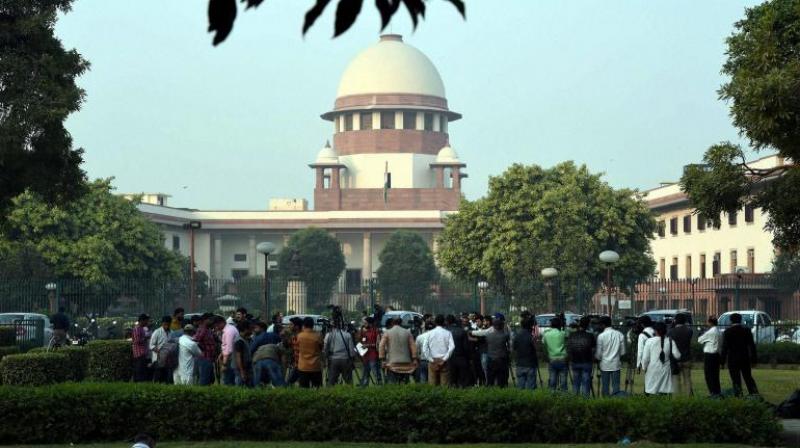SC indicates revisiting verdict which diluted anti-dowry law
The bench, also comprising Justices A M Khanwilkar and D Y Chandrachud, issued notice and sought the Centre's response by October 29.

New Delhi: The Supreme Court on Friday indicated that it would revisit its two-month-old verdict which reduced the severity of the anti-dowry law, saying it appeared to affect the rights of women.
A two-judge bench had on July 27 directed that no arrest should "normally be effected" without verifying allegations as the violation of human rights of innocents cannot be brushed aside.
A bench headed by Chief Justice Dipak Misra said it is not in agreement with an earlier verdict, which had actually diluted the severity of section 498A (subjecting married woman to cruelty) of IPC by constituting a buffer of family welfare committees in every district to verify the allegations against husband or the relative of husband of a woman.
The bench, also comprising Justices A M Khanwilkar and D Y Chandrachud, issued notice and sought the Centre's response by October 29.
"The judgement had laid certain guidelines for arrest under section 498A of IPC which appears to be an exercise under the domain of legislature. We are not in agreement with the view taken as it is liable to affect the rights of woman," the bench said.
The bench was hearing a plea filed by an NGO 'Nyayadhar', an organisation formed by a group of lady advocates of Ahmednagar district of Maharashtra, seeking for sharpness of section 498A claiming that the otherwise "helpful instrument" in the hands of victim women has become "valueless".
The plea filed by advocate Alok Singh suggested that out of three members of family welfare committees, at least two should be female members and one member who has done Masters in Social Works be appointed.
It also suggested recording of facts at the time of counselling and said the committee should also consider the economic status of the parties.
On July 27, the apex court had voiced concern over "abuse" of the anti-dowry law and directed that no arrest should "normally be effected" without verifying allegations as the violation of human rights of innocents cannot be brushed aside.
It had passed a slew of directions to deal with complaints under section 498A of the IPC including the constitution of family welfare committees in every district, has observed that many of such complaints are not bonafide and "uncalled for arrest" may ruin the chances of settlement.
It had noted that the apex court had earlier observed that a serious review of the provision was warranted and at times, such complaints led to uncalled for harassment of not only the accused but also the complainant.
The apex court had directed that in every district, one or more family welfare committees be constituted by the District Legal Services Authorities (DLSA) and every complaint received by police or the magistrate under this provision be referred to and looked into by the committee.
It had said that such committees may be constituted of paralegal volunteers, social workers, retired persons, wives of working officers and others who may be found suitable and willing.
The bench also said that if a bail plea is filed in such matter, the same may be decided as far as possible on the same day with at least one day's notice to the public prosecutor or the complainant.
It said that regarding persons residing out of India, the process of impounding of passports or issuance of Red Corner Notice should not be a routine.
The apex court had also said that personal appearance of all family members and particularly of outstation members may not be required and the trial court ought to grant exemption from personal appearance or permit appearance by video conferencing without adversely affecting the progress of the trial.
It, however, clarified that "these directions will not apply to the offences involving tangible physical injuries or death".
The court had asked the National Legal Services Authority (NALSA) to give a report about the need for change, if any, in the directions or for any further directions and listed the matter for consideration in April 2018.

